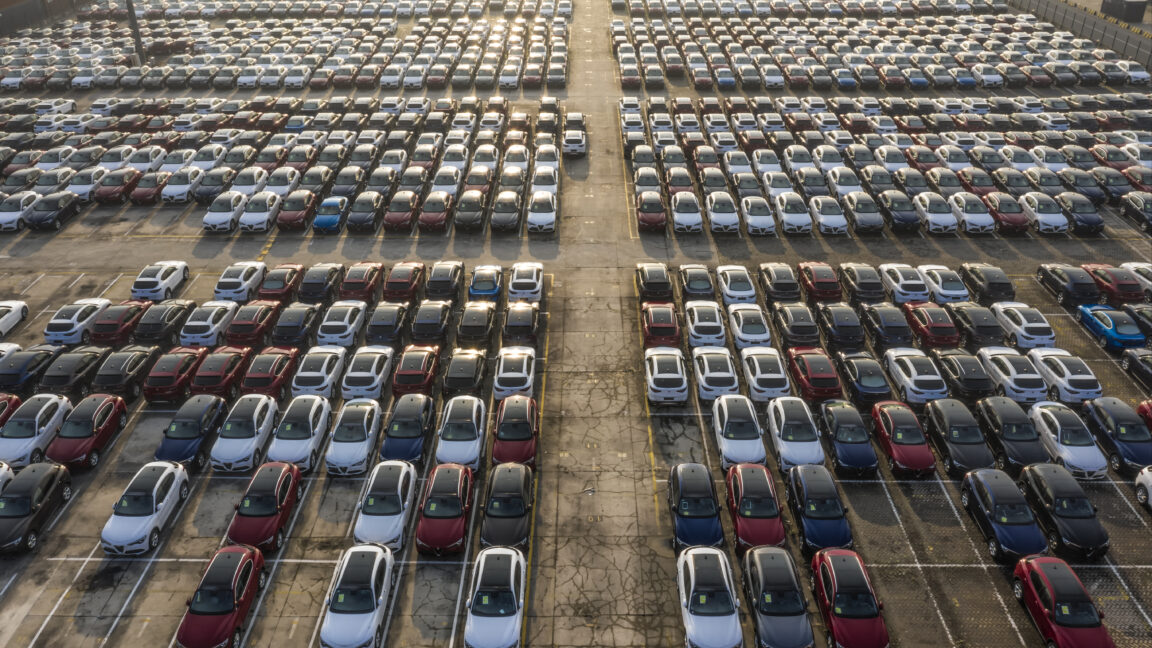
An ill wind blows through the automotive industry. Yesterday, after the market closed, Rivian reported its results for the second quarter of 2025, and they weren't great. Unlike the last two quarters, Rivian did not make a gross profit, and it's estimating it will have a larger loss this year than first predicted. A day earlier, it was Lucid's turn: The Saudi-backed EV startup also missed analyst estimates for the quarter, and Lucid says it will build fewer cars this year than originally planned.
"We delivered solid performance despite a challenging macroeconomic backdrop, thanks to the adaptability and focus of our team in navigating a dynamic environment," said Taoufiq Boussaid in an elegant bit of business-speak that elides the true horror of the situation.
In both cases, the reasons for these underwhelming performances were the same: US government policies. Since taking office in January, President Trump and the Republican Party have been hard at work tearing up environmental regulations and overturning policies meant to encourage EV adoption, as well fomenting a global trade war through the imposition of irrational and costly tariffs.
One hit after another
At the end of September, the IRS clean vehicle tax credit, which provides up to $7,500 off the purchase of a new EV, goes away. Billions of dollars in already-appropriated funding have been clawed back to prevent states from paying for a network of high-speed chargers or to build out EV infrastructure in rural or deprived areas. And automakers are no longer being fined for breaching fleet fuel efficiency targets, which means those more-polluting OEMs need not bother paying for carbon credits, either.
But plenty of Trump's policy changes affect the rest of the auto industry, too. This is especially true in the ever-shifting tariff landscape. Thanks to decades of free trade with Canada and Mexico, car manufacturing spread out across North America. Even if final assembly of a car takes place here in the US, much of the content of that car will have come from Canada or Mexico, and some components can cross the border more than once in the manufacturing process from raw material to finished product.
All of that is now subject to new import tariffs, which drives up the cost of even domestically produced vehicles. Not even highly vertically integrated Tesla is immune.
General Motors blamed Trump's tariffs for costing it $1.1 billion in Q2 and as much as $5 billion by the end of the year. And while the new anti-EV adoption policies are yet to fully bite, it's clear they've motivated some action inside the GM boardroom. Although GM CEO Mary Barra wrote to investors that the company believes "the long-term future is profitable electric vehicle production," she followed by explaining that GM's flexible factories will help it succeed in a world where EPA fuel economy targets are no longer a thing. That's probably why GM added 300,000 more units of capacity for "high margin light-duty pickups, full-size SUVs and crossovers."
Ford said that the tariffs could cost it as much as $2 billion this year, despite it making more actual vehicles in the US than any other automaker. That's because it has to pay the US government to import raw materials like steel and aluminum, as well as components and subassemblies.
Foreign automakers are also feeling the effects, given the importance—until now, at least—of the US car buyer. Stellantis, which owns the Jeep and Ram brands, said it had already lost $2.7 billion this year due to tariffs, although the automaker stands to benefit in the coming years from the gutting of fleet fuel efficiency fines.
Aston Martin may benefit from a lower 10 percent tariff for UK-made cars, but it described the process as "extremely disruptive," and although it has now restarted shipping cars to America, it issued a profit warning last week.
BMW is among the less badly hurt; although its operating margin fell to 5.4 percent, this was within its expectations. Mercedes had to warn investors to expect less this year, and it says the US will become a less-important market for the company, which plans to make up for it with growth in China. Volkswagen Group said the tariffs have cost it $1.5 billion so far this year, and it has also revised down its forecasts for the rest of the year.
Although Porsche announced record deliveries in North America just a week ago, its operating profit was a third of that a year ago. "In the US, import tariffs are also putting huge pressure on our business. Looking ahead, the movement of the dollar could also have an impact. In addition, the transformation to electric mobility is progressing more slowly than expected overall, with consequences for the supplier network," said Porsche and VW Group CEO Oliver Blume.

-
 C114 Communication Network
C114 Communication Network -
 Communication Home
Communication Home


